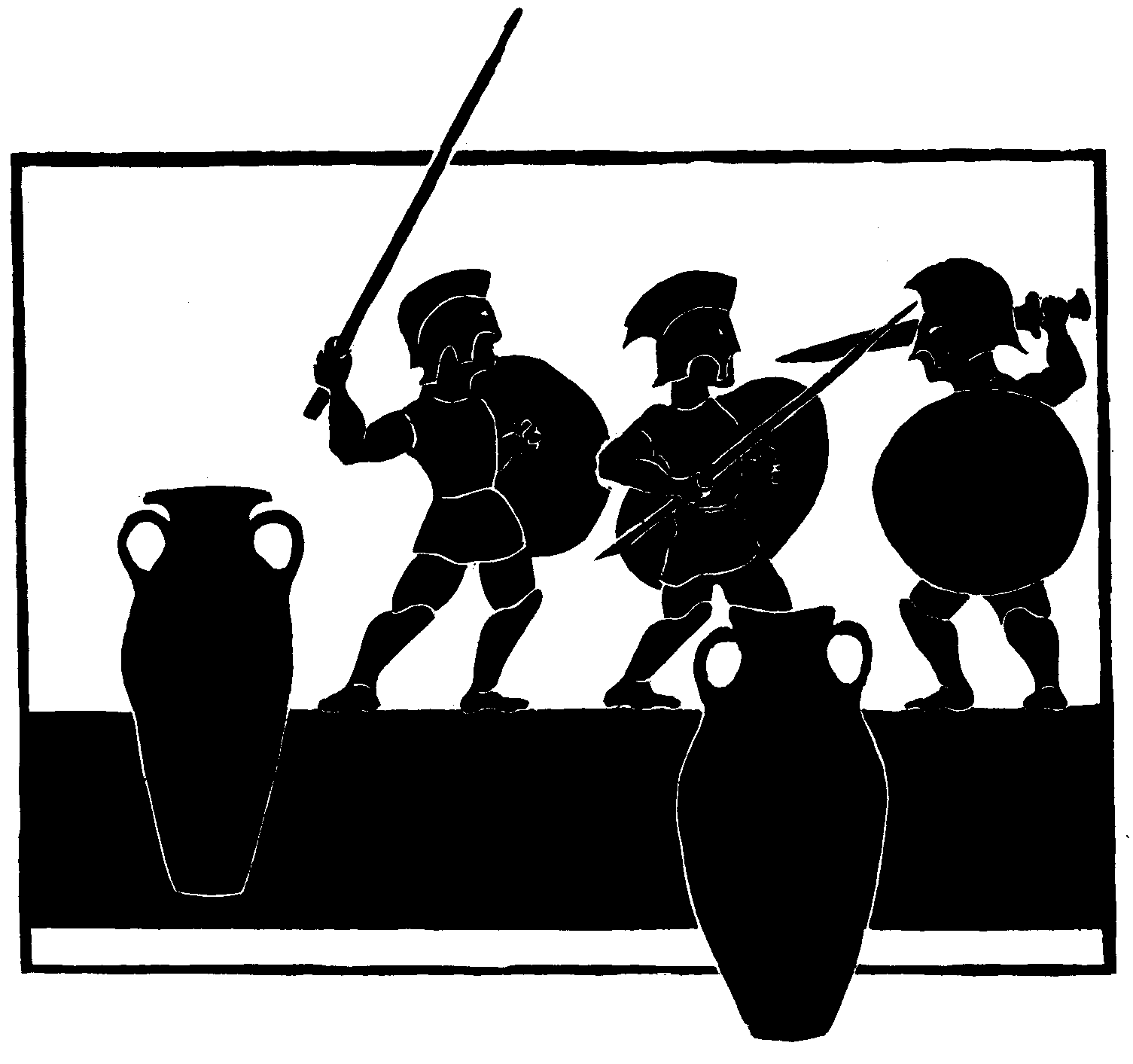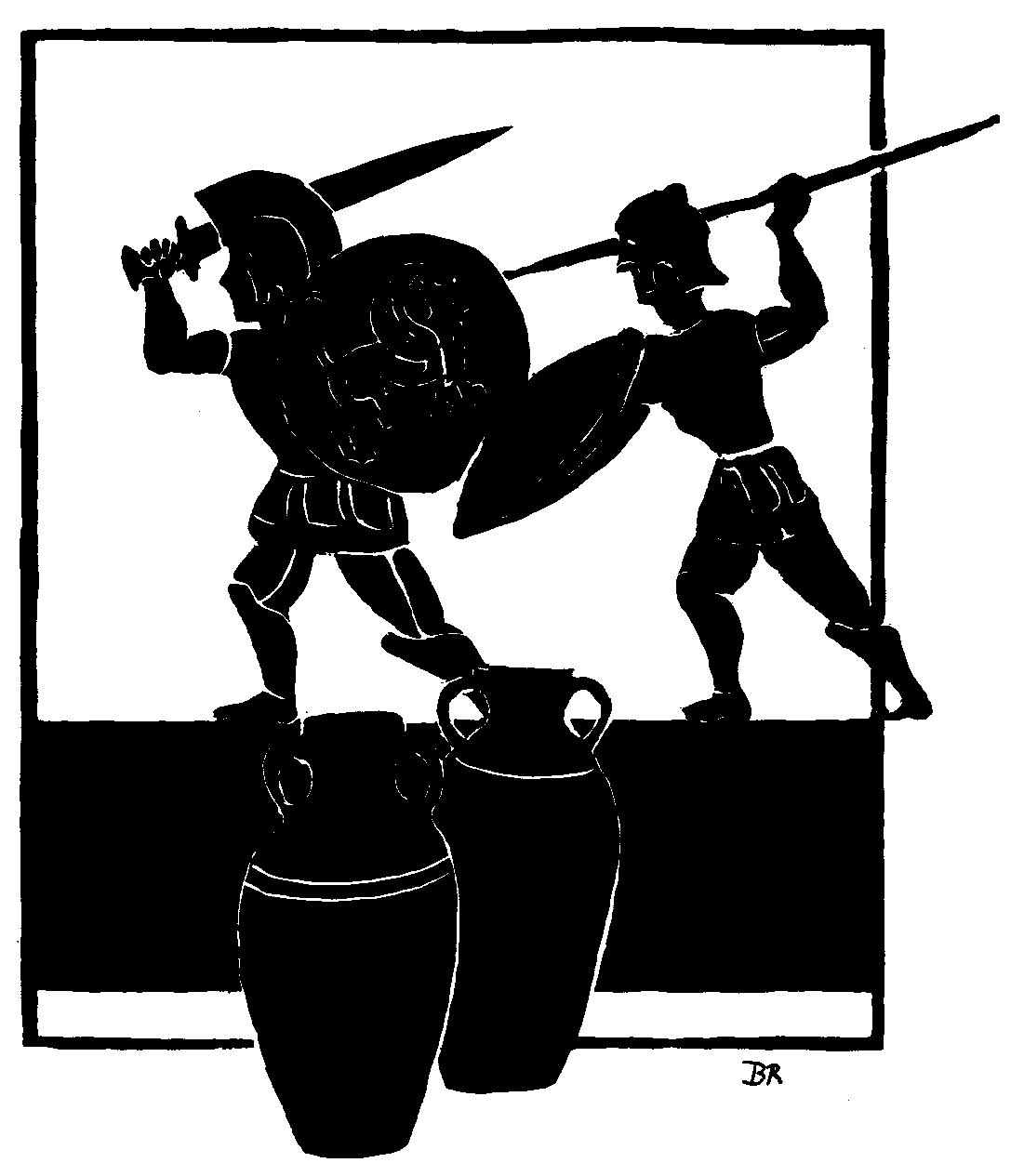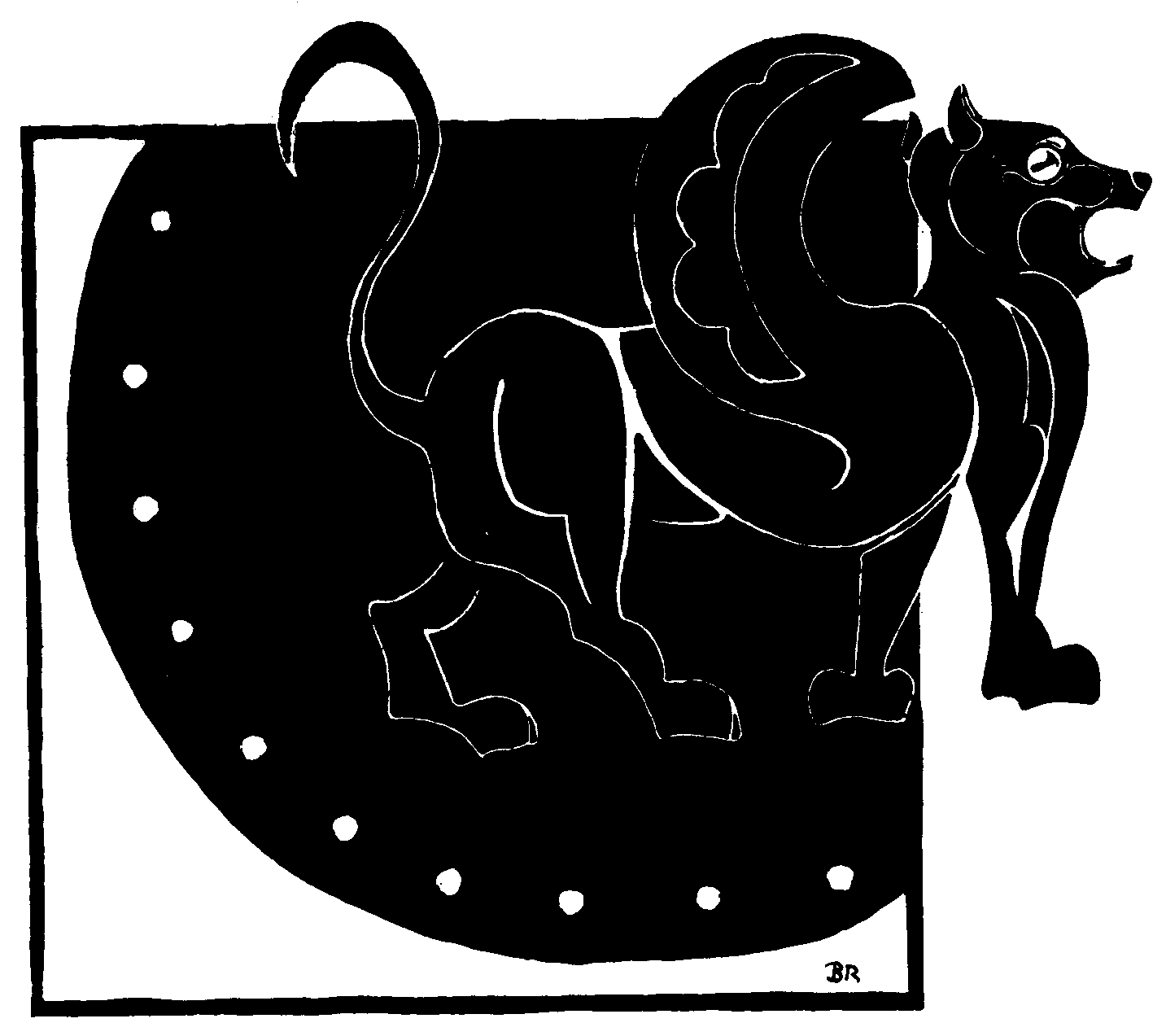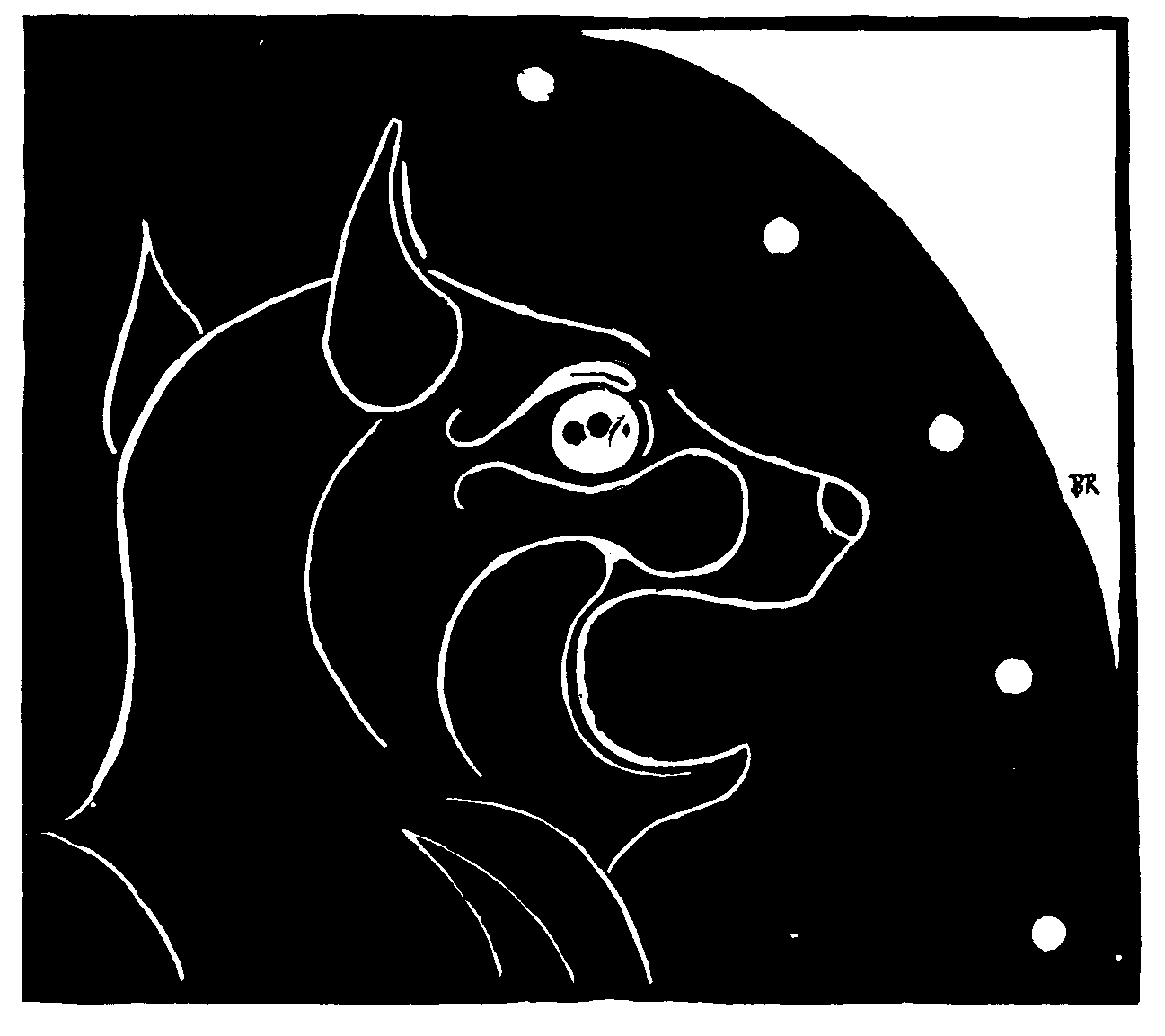
Poetic prose and a poem by
Robert Steiner
Art by Barry Ratliff

My Asian Frontier
Aujourd'hui il est à Madrid; demain il sera à
Saint-Petersbourg;
Today he is in Madrid, tomorrow he will be in Saint Petersburg,
hier il se trouvait à Pékin;
yesterday Peking.
Or, depuis les jours de ma naissance, où je vivais avec les
premiers
Since the days of my birth when I lived among the earliest
aïeuls de notre race, encore inexpérimenté dans la tension
ancestors of our race, those who did not feel the pressure
de mes embûches; depuis les temps reculés, placés, au-delà de
of my sprung traps, and in the coils of time and place before
1'histoire, où, dans de subtiles metamorphoses, je ravageais,
history, before I ravaged
à diverses époques, les contrées du globe pas les conquêtes
the nations of the world by conquest
et le carnage, et répandais la guerre civile au milieu des
citoyens,
and carnage and civil war disguised as time,
n'ai-je pas déjà écrasé sous mes talons, membre par membre
hadn't I already crushed in my talons, piece by piece
ou collectivement, des générations entières, dont il ne serait
pas
and collectively, whole generations?
difficile de concevoir le chiffre innombrable?

In the meantime a village in Peru disappeared in an earthquake, and a gangster war in Palermo came and went, and a mistress was stroking a boy, and foreigners took guns, and a Brazilian escudara licked the breast he had tortured with pincers and a lighter; a great tiger ate a hamlet, an ice floe divided the Alaskan walrus from its family, and the fan belt of a jeep carrying surveyors broke inside Zanzibar's lush interior; Luzon natives sowed while those on Curczon harvested; gulls fainted from a tugboat's blast, pencils cranked in sharpeners, miners dug for veins of ore in their underground workshops; but after taking honey with tea, and walking Germaine's poodle though one arrondissement after another, a muffler knotted with care about the throat, I was certain that just as Germaine's skin is as white as the wall of a museum, Kahli's skin was oily, bronze, the flesh of a lathered horse.
In the Trident jet built by the British, nine passengers await
word that the border has been crossed. The word looks like this:
![]() Their leader
drums his fingernails against the shallow cup holding black
bitter tea. In the cabin lights remain off to discourage small
missile fire from the ground. They fly above the mountains before
Manchuria, above impassable terrains through which, when he was
twenty eight years old, the leader commanded the largest army in
history. The Trident roars dreamily steadily wearily over
arsenals he could pinpoint if it were daylight. Over tracking
stations where his escape is a node of light. Above furred
echelons of frontier troops big as bears.
Their leader
drums his fingernails against the shallow cup holding black
bitter tea. In the cabin lights remain off to discourage small
missile fire from the ground. They fly above the mountains before
Manchuria, above impassable terrains through which, when he was
twenty eight years old, the leader commanded the largest army in
history. The Trident roars dreamily steadily wearily over
arsenals he could pinpoint if it were daylight. Over tracking
stations where his escape is a node of light. Above furred
echelons of frontier troops big as bears.
Look, said our guide,
China!
Soon
Rice paddies and yoked oxen, wooden
Bowls in which pea pods stand cold,
The dog's flesh in a smoky rank market,
A snake coiled on our plates.
We treasure blue cups of nut tea
That soothes the sores in our mouths.
Who could know the expectancy
Or witness our eagerness as we assumed
One oily face after another, and
Sinuous pores, cropped hair, the damp
Misshape of loose suits, colorless
As all of them wore.
With quiet care a stout unshaven domo in wrinkled military dress sets into the man's lap a paper sack. Briefly they exchange despairs but the agony is so huge and grandiose that the domo, without saluting, lumbers away toward the open cockpit. The darkness coughs. It flips pages of a book that cannot be read because of it. Still, from the rear, the traitor looks after his loyally treasonous refugees who are scattered against cushions staggered throughout the jet. He watches meek red and blue lights on the pilot's panel far ahead, then white dials which remind him of flowers, penetrating them as if these are the destination. In the paper sack he feels cold dry beans that are recognized as statements of faith from his officers and colleagues in sedition. The beans are fragrantly fresh. Furthermore, they signify that other traitors believe the Trident — bought in fact by him from the Pakistanis — will come to rest safely despite awful weather, manual navigation that keeps the pilot pointing at stars, half an army scouring the country for him, agents throughout the world offered great sums to bring him down, an extraordinary personal history known by all militarists and politicians in hundreds of languages, posters of his face glued to columns in most of the capitals of Asia. He will cook beans, his favorite dish, when the jet has arrived on the other side. That's what the beans mean in his lap.
Once, above Albatross Cordillera, near the
Antarctic throat, I viewed whale eyes from a plane in July.
Then in Asia I saw the meadow in a native's eyes —
Without sorcery or guile she wore
Bracelets, and nothing, which glistened
Or steamed when, drenched in the archway of the tent,
She discovered me feeding leaves
To the cockatoo
And stood naked after unsnapping the mac
I had given her father for Christmas.
Sniffing the icy air he announces to the darkness that they are all weak sisters incapable of behaving swiftly with sinister intent, though they are full of love for him. The darkness turns its head. He weighs barely one hundred pounds and cannot remember how hair feels on the head. Over his ears gray muffs keep the jet to a shriek. Every renegade touches genius, he mythifies aloud. Merdistes, he calls the cabin before him, recalling his youth in Paris. Bodies, wrapped in scarves, enormous mittens and boots like the legs of sheep, stir. When cabin lights ignite the mountains disappear, uninhabited valleys and inhabited ones shrink into memorial nightmares. The others are standing in clumsy joy, looking down from windows onto the earth. He sees only his face in the window and a glow of light on his skullcap. It occurs to him: of course, we have crossed!

Together we knew finality, six
Or seven kinds: her father's voice
Forbidding her to move one step,
her hand like creamy oil stringing the net for mosquitoes
And bats, my carbine swept away with the wireless
In the monsoon that ruined the pea crop;
Others too, such as her stomping brown foot or parts
Of the body where leeches had drawn blood — I
Kissed the terror away; in the arms
of the enemy as they led her in the night
To the Dawna Cliffs at the River
Salween; as she brought one hand
To my nose in a fist, spreading the other
Across the waterways of Asia.
Soon dark behavior patterns will stand revealed but smear the
picture.
Soon someone will phone to discuss chinoiserie.
Soon Germaine will return from the Bibliothèque Nationale with a
significant picture book.
Soon, in Paris, it will be time to pack and depart.
Soon choppers will evacuate the defeated from rooftops.
Soon there will be the question of whether to place bamboo shoots
and brown rice in the corners of anyone's moustache.
Soon Germaine will object to the gratuitous deaths of all these
people.
Soon, fortunately, the poodle will need another walk.

Of the two women on board one is his wife, sedated the entire flight with injections of Demerol and left in the parka of a secretary who sits with her in yellow glasses. Apart from himself they are alone in not standing, in not sucking the relief or grinning. Someone pours champagne for the pilot whose authoritative voice speaking with the radio permeates the cabin, quelling the traitorous joy. Making ground contact he is seeking confirmation of the secret prearranged flight plan from a distant tower. The leader is troubled by the champagne and so calls over the domo and they chat. Who does he suppose had either time or forethought to think of such a thing as extravagance? Who, moreover, would have seen to space in the one small bag each took for a bottle of anything? He orders bags searched to see if someone doesn't need throwing out. Anyone not full of escape clothes, whatever they're like, is not planning to escape. With the greatest expense of effort, and feeling his age and illnesses mightily, he lifts himself from the warm seat. Oblivious to the fallen horsehair blanket, the dumped teacup, the beans spilling from the sack, he rises. At last, for the first time, he gets up. Not so much with a sense of urgency but with an urgent need for thought, he grips the arm of his seat and stands. Groaning, the old general holds himself up on watery knees and leaves the seat behind.
From behind a beetle nut tree
She watched me string the cats, driving
Wire through their tails before I bought her with them
And sacked the cabbage for our meal,
Casting glances at me from the dangerous
Mushrooms five feet tall, parting gently the clear
Poignant polyanthus vines.
Or the moon, Germaine said, that stands close by a star cluster like an edge, an ordinary horizon: were we free, in space at such a moment, it would be a new realm of experience. She was standing on the sill of the open window like a new truck in Ethiopia, insisting that now she would jump backward to avoid the look of Paris. I held the poodle by the chain, still in my coat and muffler fresh from the alley when she jumped, landing a foot from the window on the fire escape, a fearsome deed in the sleepy skyline of Paris, at that hour of the evening that goes the longest way. I shall speak of your mischief, I told her. And you, she replied, where will you go now?
His shadow precedes him along the cabin wall, other traitors grant him berth, greet him with eyes only, smiles erased, eyes that are used the way drunks do lampposts, his legs rubbery and crooked, dangling in front like string though he cannot see his feet any longer, the hand he poises stained with age, tapping the quilted shoulder of the woman embracing his drugged wife. Soviet Union, he whispers, indicating into the night the snowy foreign mountains. Her face is odd, great jowls hanging in animal frown, eyes nearly open, nose running, a woman on the verge of sleep whom he turns to depart from, and though her hand is slow to move in the Russian air space, removing itself from her pocket it pits the revolver to the ridge of his forehead, grazing a thin eyebrow, unprofessionally cocks the hard hammer, yet drills him with rapid fire to the cabin wall, creating a hollow ring against the metal of the Trident jet made by the British and bought from the Pakistanis. Only then does the woman release his wife, only then does she herself fully awaken.
Ordered to conduct the evacuation I discharged the duty from the roof of the Hilton, seated at a table in the wind, wiping the flag someone had placed there out of my face, saving the handsome, the rich, the fuckworthy, and failing to save the rest, and choppers, when they came in, blew Asians over the side and if they went off again in spite of the weight carried children no farther than the sky, and one chopper slid across the roof full of arms, of legs, tumbling into the center of the city in a buzz, cutting my decisions in half, and soon we were shattering kneecaps with our automatics, elbowing the Asians into the blades, and in the meantime farmers brought stone implements and spears enough to start a fucking tribe, and the roof was walled with sorghum sacks and oxshit in wooden pails, until farmers stood ten wide and thirty deep before my desk in the wind of the Hilton roof, falling to the
ground at the cur-cur-cur of the choppers, and conducting the evacuation I had to explain up from down to some of these people, had to approve using our Flammenwerfer on the embassy grounds, and saw throats cut not for a free ride out but for a place before me, saw children sucking the lollies of my immediate staff, saw a relic of the bronze age in a pimply officer's hand, while people threw people off the roof, and by sunset my staff was leaking dope from their trouser pockets, and by midnight we were all out of their nation, and the sound of gunfire from our chopper into the streets as we departed was something like tiu-tiu-tiu. We never used concussion bombs on hospitals.
Gunfire sings through the Trident. Closing the space between herself and the cockpit she plants a tiny bullet in the navigator's throat. The gunfire screams. For an instant she must think which side of the human back hides the heart before cocking again and driving herself into the pilot's overcoat. Her calf stings and will not hold her. The gunfire whistles. She fires into the base of the pilot's brain, slumps with him across the lights of the panel, hears behind her the ringing gunfire, sees before her the white night, hurtles with the jet built by the British into the snow-capped rufous mountains hundreds of miles from Moscow.

I have heard the caciques
Preparing incense, telling epics,
And have drawn the bead in caves too mossy to enter.
I have seen, since then, eyes on the astrakhan
Beaches, as they notice us but turn away.
The grass of China simmered near the frontier,
Her head was shaved, her face pottered with tar,
A sign I could not read covering the severed breasts —
All the liquid of imagination though
The tree was a juniper at the Chinese border.
By dawn Germaine accepted it that memories of Asia can generate trauma.
Maldoror drew from his pocket an American knife.
Maldoror prit de la poche un couteau d'Amérique.
We never cut a throat, no massacres
Occurred, no such place
Ever stood.
![]()
The Situation
One earnest dream:
The European stag bending down,
The knuckle of its knee in dust.
Where the dream is largely dread
The dream works like the tongue
Soothing one or the other hoof
As if a spear has glanced it,
An arrow nicked it, the way in life
One would lick the blood from a finger
A beautiful friend has cut.
The word Spielen comes to mind when I wake
As though in the dream I have felt the comparison first.
The comparison, of course, is stiffening
Like someone's translation of a text I have known
Intimately, for years,
And believed could not be done.
![]()
My Asian Frontier and The Situation were originally published in:
| EAT IT ALIVE is published by the University of Colorado at Boulder Creative Writing Program. Robert Steiner teaches at the university. His latest book, Passion, is published by Penmaen Press. Graphic art by Barry Ratliff. EAT IT ALIVE is edited by Normandi Ellis and Anne Trupkiewicz. Special thanks to Mathis Printing and Silver and Gold for use of their facilities. Volume 3, Issue 3, © November 1981 |